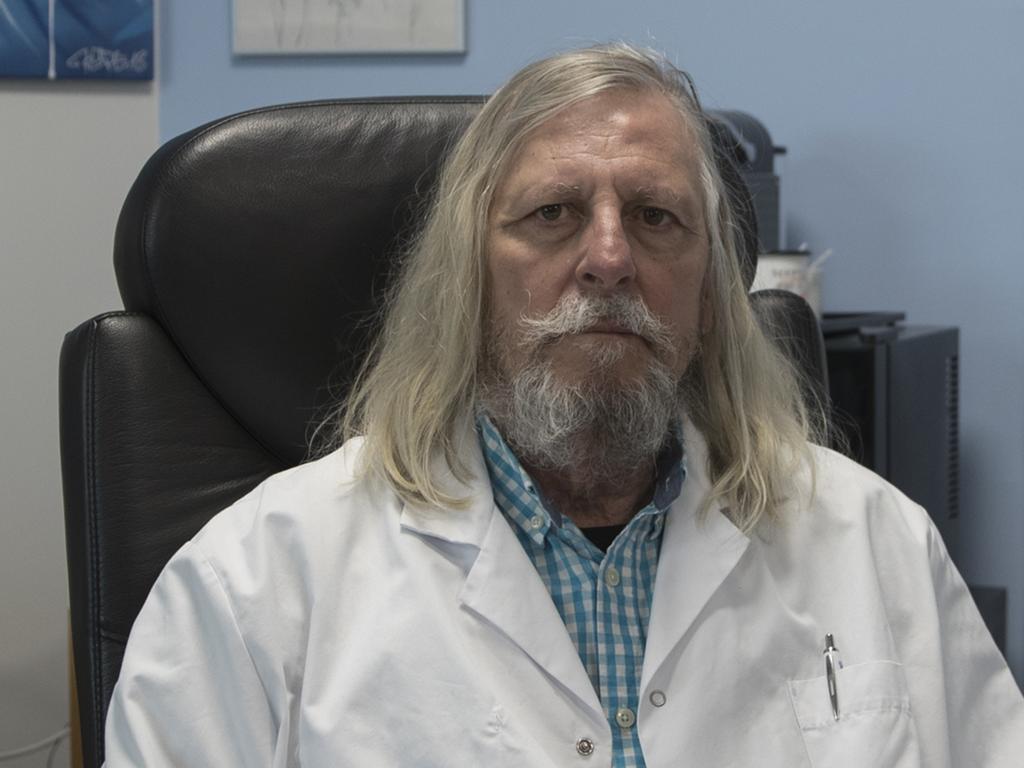Coronavirus: hydroxychloroquine trial for Covid-19 test aborted after deaths
Fresh doubts have been cast on the safety of the antimalarial drug hydroxychloroquine to treat coronavirus after many study participants died.

Fresh doubts have been cast on the safety and efficacy of administering the antimalarial drug hydroxychloroquine to treat coronavirus as an international clinical trial is cut short over concerns at a high rate of death in study participants.
The Journal of the American Medical Association (JAMA) published results of the aborted study, which involved 81 patients in hospital with severe cases of COVID-19 in Brazil.
The study was stopped after some patients developed irregular heartbeats and nearly two dozen died after taking doses of hydroxychloroquine daily.
Hydroxychloroquine — touted as a miracle drug by US President Donald Trump — will be administered to hundreds of patients during an Australian clinical trial that is also testing the efficacy of the HIV drug lopinavir.
Politician Clive Palmer has bought millions of doses of hydroxychloroquine and donated them to the National Medical Stockpile.
The major Australian clinical trial, known as the ASCOT study, will involve more than 70 public and private hospitals in Australia and hospitals in New Zealand and Singapore. Patients sick enough to require hospitalisation but not requiring admission to intensive care will be asked to participate. A quarter of the patients will be given hydroxychloroquine, currently used to treat arthritis and prevent malaria; a quarter will be given lopinavir, also known as ritonavir. A quarter will be given a combination of the two drugs and a quarter will be given no treatment.
Researchers say they are considering the various international studies being published into hydroxychloroquine and will discontinue administration of the drug in the trial if there is strong evidence of harm.
Heart rhythm problems are a known side-effect of hydroxychloroquine, but the Australian researchers plan to thoroughly screen all participants for pre-existing arrhythmia. The ASCOT researchers plan to administer hydroxychloroquine at high dose for a limited period of seven days.
ASCOT trial principal investigator Josh Davis said all potential participants in the study would undergo an electrocardiogram to check for any heart rhythm problems. “The reason we feel comfortable with using a higher dose of hydroxychloroquine is it’s only for seven days,” Professor Davis said. “And usually this is a drug that’s taken for years on end for things like rheumatoid arthritis.
“Most of the side-effects generally only happen with large, cumulative doses.”
In the Brazilian study, 40 patients were given 450 milligrams of the drug twice on the first day and once every day for the following four days.
The 41 other patients were given 600mg twice daily for 10 days. Patients were also given the antibiotic azithromycin.
By day 13 of the study, six of the 40 patients in the low-dose group had died. Sixteen of the patients in the high-dose group also died.
In an editorial published by JAMA, US infectious diseases professor Stephan Fihn said the study’s findings were concerning.
“One can only conclude from this trial that high-dose chloroquine (and by close association, hydroxychloroquine) in combination and azithromycin and possibly oseltamivir, is potentially associated with increased mortality among patients with severe, suspected COVID-19,” Professor Fihn said.








To join the conversation, please log in. Don't have an account? Register
Join the conversation, you are commenting as Logout